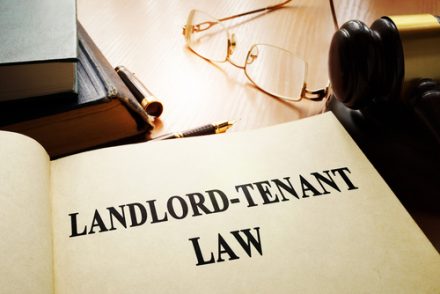
Landlords’ options for enforcing commercial tenants’ obligations
3rd December 2020 by Mark Timberlake
As the economic impact of the pandemic grows, many commercial landlords are struggling to collect rent and enforce their business tenants’ other lease obligations. While the Government has acted to protect business occupiers by restricting landlords’ rights to take enforcement action, this has left some landlords struggling to meet their own financial obligations and keep the buildings in their portfolios in good repair with a significantly reduced income stream. Faced with this difficult situation, landlords should talk to their solicitors about their remaining options.
‘Landlords of commercial property have been dealt a double blow’ says Mark Timberlake, head of Landlord and Tenant matters at Laceys. ‘At the same time that a significant number of business tenants stopped paying rent, landlords’ most effective remedies were blocked.’
In normal times, a landlord can often force a commercial tenant to pay up by simply starting the process of forfeiting the tenant’s lease. Alternatively, the landlord could threaten to push the tenant into insolvency by serving a statutory demand. Neither of these remedies has been available because of a temporary moratorium imposed by the Government, which has now been extended to the end of 2020.
In the longer term, we expect to see the commercial landlord and tenant relationship shift more towards partnership, with turnover-based rents encouraging both owner and occupier to focus on the success of the tenant’s business. For now, landlords need to look at what tools they have left to collect rent and enforce their tenants’ other obligations.
Suing for debt
On the face of it, there is nothing to stop a landlord bringing court proceedings to recover rent arrears as a business debt from the tenant. In practice, this is not an attractive option, because the landlord must incur costs at the outset in putting together the claim and starting the court process. There is already a big backlog of court cases, so it could be many months before the landlord gets judgment against the tenant.
Rent deposits
If the tenant entered into a rent deposit arrangement when the lease was granted, the landlord should be able to draw on that money to cover unpaid rent and other costs where the tenant is in breach of obligations. The sizes of rent deposits vary, but they would typically cover three to six months’ rent. This could be useful in the short term but, if the effects of the pandemic continue, the fund will quickly be used up and a struggling tenant is unlikely to be able or willing to top up the deposit as the arrangement normally requires.
Guarantees and AGAs
Landlords should definitely explore with their lawyers their scope for claiming under lease guarantees. There may be a guarantor for the current tenant and if the lease has been assigned since it was granted, there may also be an authorised guarantee agreement (AGA) from the previous tenant.
Guarantees remain enforceable even if the tenant has become insolvent, although there is always a danger that the guarantor will go into insolvency too. If you want to claim from a previous tenant, it is important not to delay. Your solicitor will need to serve a formal notice (a section 17 notice) within six months of the unpaid sum falling due. For example, if rent was not paid in June, notices must be served by December.
Preserving rights for the future
Landlords must usually be careful about accepting any rent where there are still arrears, because this could waive their right to forfeit. The current moratorium on forfeiture also protects landlords by suspending the usual rules on waiver, so landlords can safely explore compromise agreements with tenants while preserving their right to forfeit when the ban is eventually lifted.
Talk to your solicitor if a tenant pays part of the outstanding rent. If you accept it, you must it make it clear that you are treating it as payment of the earliest outstanding arrears, otherwise the tenant could argue that you have accepted it as the most recent rent due and waived your right to recover earlier unpaid sums.
How we can help
While there are still things a landlord can do to enforce tenant obligations, many of them are subject to some quite technical procedural requirements. We can guide you through them, giving you the best chance of emerging from this turbulent period in good financial shape.
If you would like any further advice or assistance please contact m.timberlake@laceyssolicitors.co.uk



